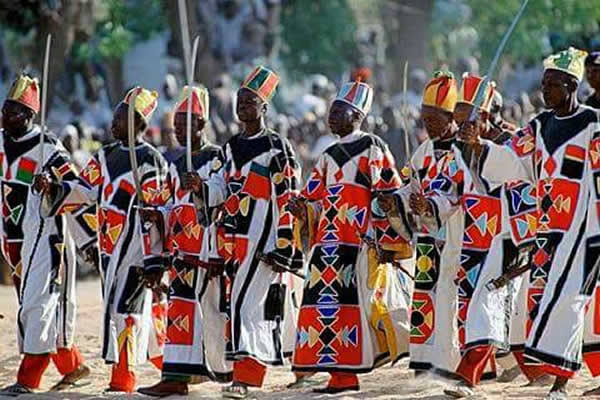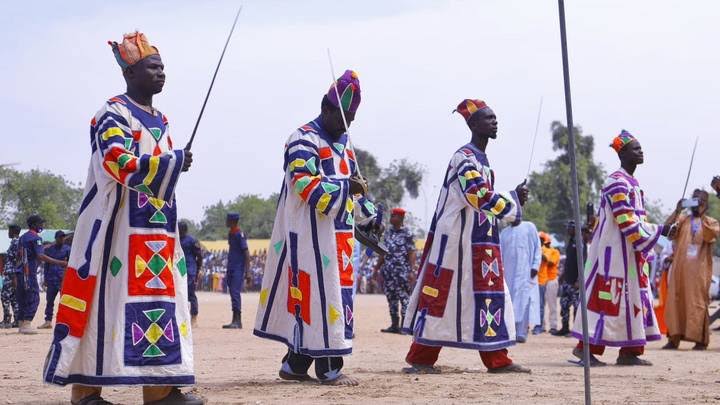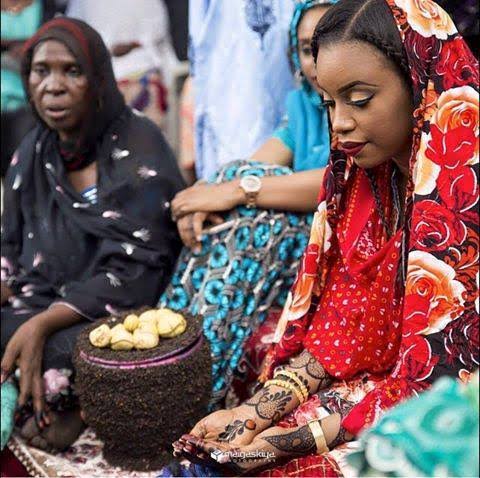Special Features
Amazing history and cultural facts of the Kanuri people of Nigeria

This article by News360 Nigeria explores the remarkable history and diverse cultural facets of the Kanuri people in Nigeria.
The Kanuri are an ethnic group that primarily inhabits northeastern Nigeria, southeastern Niger, and parts of Chad and Cameroon.
Their rich history, culture, and customs have been shaped by centuries of civilization and interactions with various cultures.
They are descended from the same dynasty as the provinces or vassals of the medieval Kanem-Bornu empire.
The Kanuri language is spoken by the majority of the Kanuri population, who reside in Borno, Nigeria.
The Kanuri people are distinguished from other tribes by their striking heights and dark complexion, which is a holdover from their previous existence as warriors and kings.
The Kanuri people, who are a small minority in Nigeria, are primarily engaged in farming, hunting, and pasture.
History
The Kanuri people originated in the Kanem-Bornu Empire, one of the oldest in West Africa.
The empire was well-known for its Islamic influence, trade routes, and military prowess. The Kanuri people contributed significantly to the growth and development of the empire.
Location
The states of Borno, Yobe, and Adamawa in northeastern Nigeria are home to the majority of the Kanuri population.
Significant Kanuri communities can also be found in Cameroon, Chad, and southeast Niger.
Population
It is estimated that there are more than 10 million Kanuri people.
Language
The language spoken by the Kanuri people is part of the Nilo-Saharan language family.
The language is further divided into the more distinct Kanembu language and the Manga, Tumari, and Bilma dialects of Central Kanuri.
The majority of people who speak these dialects are found in Nigeria, although a tiny minority of the group speaks the Manga dialect.
Kanuri is still used extensively in southeast Niger, northeastern Nigeria, and northern Cameroon.
Occupation
In the past, the Kanuri people were well-known for their skill in handicrafts, trade, fishing, and agriculture.
They were expert potters, leather workers, and weavers.
In addition to growing crops like rice, millet, and sorghum, they also raise cattle and other livestock. Fisheries constitute a significant source of income for residents near Lake Chad.
Nowadays, a large number of Kanuri people work in a variety of fields, such as business, government, education, and agriculture.
Beliefs
Islam is very important to the Kanuri people, who are mostly Sunni Muslims, and it permeates every aspect of their daily life.
The Kanuri people follow Islamic customs like prayer, fasting, and pilgrimage. Certain Kanuri communities still adhere to traditional animist beliefs and customs.
They also have immense respect for their religious leaders and scholars.
Cultures
Kanuri culture places a great importance on Islamic customs because the majority of Kanuri people identify as Muslims.
Kinship relationships and hierarchical structures serve as the foundation of Kanuri society.
It is well known that the Kanuri community has a rich creative history, especially in dance and music.

Being a vital component of their way of life, the people love to express themselves via dance and music.
They are also known for their skilled weaving, particularly the production of mats and baskets.
Dressing
The traditional Kanuri garment, known as the “Kulwu,” is a long robe or shroud made up of an open-stitched sleeveless gown on top, long sleeves, and pants on the bottom.
The men typically wear it with turbans or vibrantly embroidered caps to festivals, ceremonies, and other Islamic events.
Along with matching blouses, head ties, and shawls, the women dress in zani, or wrappers, made of vibrant fabric known as atampa.”
They are also spotted with beautiful body paint decorations.
These outfits, which are frequently made of vibrant fabrics, are worn with turbans or headscarves. The Kanuri people also frequently wear traditional accessories and jewelry.
Cuisines
The Kanuri people use millet as one of their main food sources, but guinea corn (sorghum) is added to it.
They have a traditional soup made with a lot of millet and served as either a porridge or dumplings.
A vegetable soup, also containing meat, groundnut oil, salt, and other condiments is spread over the Millet.
Additional Kanuri cuisine consists of “rice pudding” (Tuwo Shinkafa), “baobab leaf soup” (Miyan Kuka), “millet balls with milk” (Fura da Nono), “spicy dried meat” (Kilishi), and rice cakes (Masa).
The Kanuri people’s agricultural traditions are reflected in these dishes.
Marriage
Kanuri marriages are important occasions in which the whole community participates.
Families are very important in the Kanuri marriage process because marriage is regarded as a sacred institution among these people.

A Kanuri bride
Payment of a dowry to the bride’s family is the responsibility of the groom’s family.
Some Kanuri communities still practice polygamy, despite the fact that monogamy is becoming more common as a result of societal changes.




















